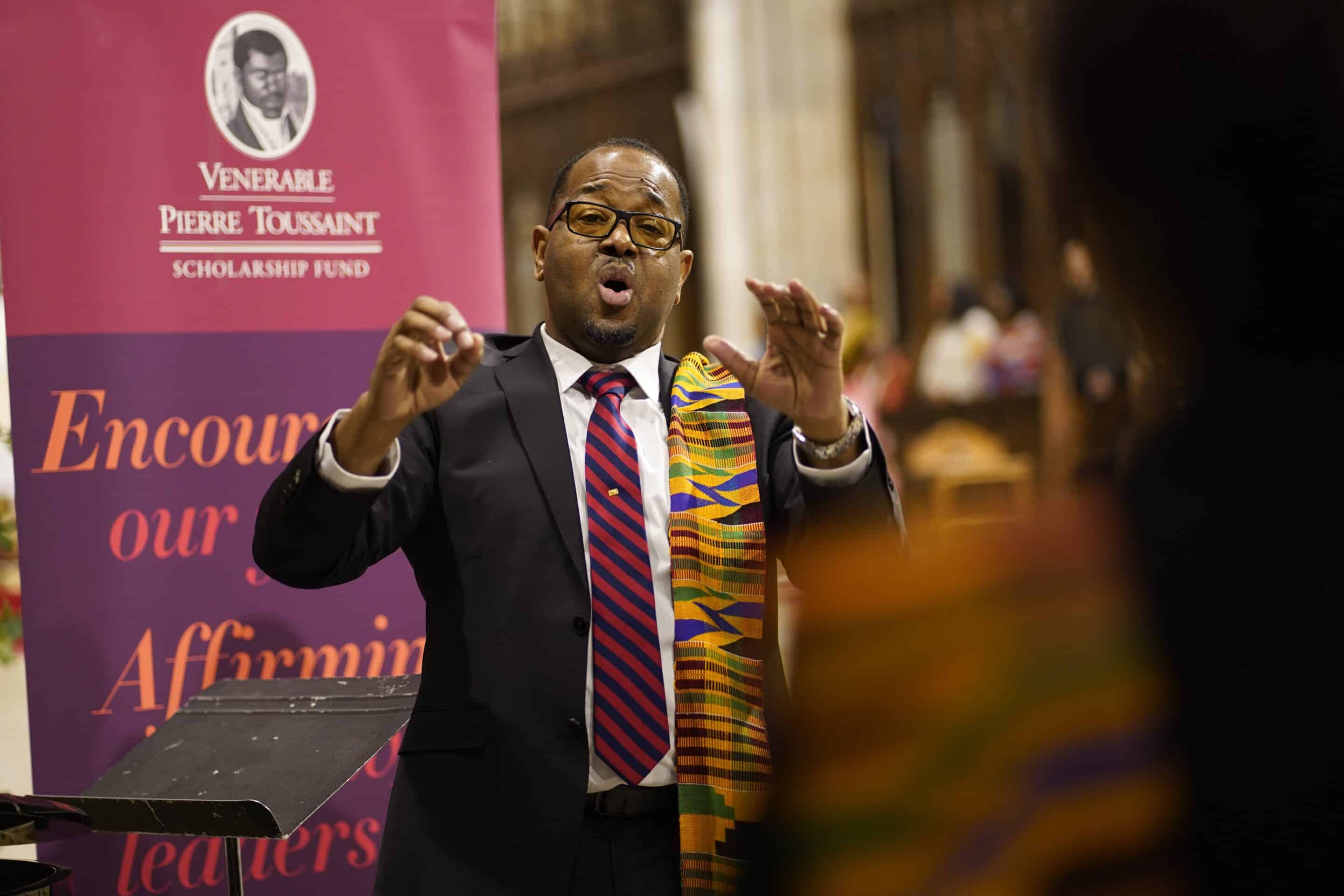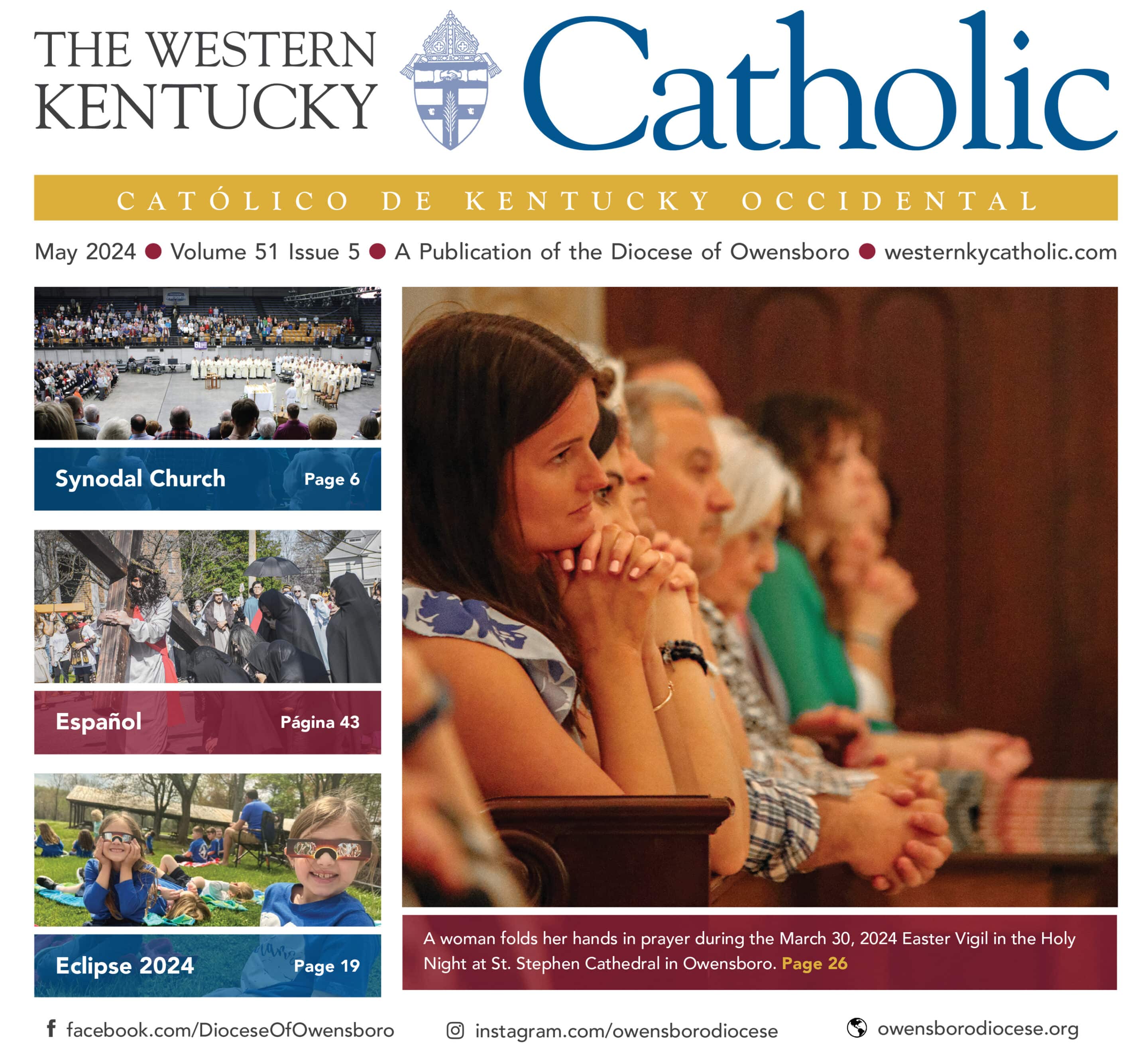
Mark Howell directs the choir during the Archdiocese of New York’s annual Black History Month Mass at St. Patrick’s Cathedral in New York City Feb. 5, 2023. The liturgy also marked the National Day of Prayer for the African American and African Family, an annual observance founded by Franciscan Father James E. Goode, former president of the National Black Catholic Clergy Caucus who died in 2022 at age 81. The Mass was dedicated to his memory. (OSV News photo/Gregory A. Shemitz)
2024 Black History Month: African Americans and the arts
BY F. VERONICA WILHITE, OFFICE OF BLACK CATHOLIC MINISTRY
Each year ASALH (Association for the Study of African American Life and History), the founding organization of Black History Month, dedicates a Black history theme. This year, the theme places focus on the historical significance of celebrating the contributions of African Americans to the arts: past, present, and future.
The artful weaving of the African, Caribbean and slavery experiences into a unique artistic presentation is truly remarkable. Initially, despite limitations of language and restrictions on education, this included quilting, the creation and use of the banjo, sweetgrass basket weaving, folktales such as “Brer Rabbit” and topsy-turvy dolls as folk-art forms. The Negro Spirituals, borne out of expressions of recurring themes of yearning for freedom (Old Black Joe), the hope to be lifted out of suffering (Swing Low Sweet Chariot), and the belief that a higher power will help a person persevere in tough times (Wade in the Water) have been recognized as Black folk music from which Black music forms have evolved. These spontaneous and unscripted songs were a part of religious and social gatherings as well as work songs and continue to be the “voice” of Black culture from the plantation during slavery to the rural South and urban settings after Emancipation and worldwide today. “We Shall Overcome,” the anthem of the Civil Rights movement embodies these recurring themes even today as does the Black National Anthem, “Lift Every Voice and Sing.”
While Spirituals remain an integral part of praise and worship, by the 1920s, Gospel music had evolved with such composers as Thomas Dorsey (“Precious Lord”). Along with this development, Black folk music or Blues in the Southern Delta was advancing nationally while in New Orleans jazz had become a unique style of music spreading to cities to which Blacks were migrating.
Black contributions to literature began with the slave narratives written by former slaves about their experience and often physical and emotional torture. Blacks established newspapers in New York, Chicago, Pittsburg, and many other cities since major publishers would not print obituaries or any news or information of concern to them. The first Black-owned and operated newspaper in the U.S., Freedoms Journal, was established in 1827. “We want to plead our own case,” wrote publishers John B. Russwurm and Samuel Cornish. “Too long have others spoken for us.”
Sculptors like Edmonia Lewis and painters like Henry O. Tanner all contribute to Black expression through art. The 1960s brought the Civil Rights Movement, the Vietnam War and a cultural evolution known as the Black Arts Movement. Many Black entertainers such as Ray Charles and James Brown spoke out against racism. The Freedom riders staged sit-ins and peaceful protests throughout the South while Black artists wrote poems, song lyrics and essays in protest of the war and promoting racial/ social justice such as Sam Cooke (Change is Gonna Come), Marvin Gaye (Inner City Blues/What’s Going on?).
The term Afrofuturism was used approximately 30 years ago to define cultural and artistic productions that imagine a future for Black people without oppressive systems and examines how Black history and knowledge intersects with technology and science.
Let us recognize Owensboro’s Pulitzer prize-winning photojournalist, Moneta J. Sleet, Jr. Additionally, we recognize Black Catholics who have had an impact on art, which include Toni Morrison, Kobe Bryant, Amanda Gorman, Simone Biles, Billie Holiday, Mary Lou Williams, Aaron Neville, and Fr. Clarence Rufus J. Rivers, a pioneering priest and liturgist, artist, composer, author, presenter and activist.
F. Veronica Wilhite is the director of the Office of Black Catholic Ministry in the Diocese of Owensboro.

